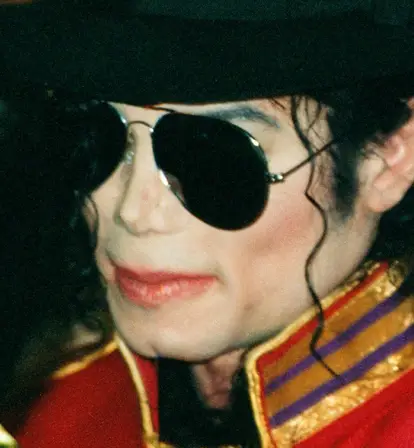During a sleepless night, Michael Jackson reportedly begged his personal doctor to give him propofol on June 25, 2009. It was the last thing he ever did.
For a brief moment on June 25, 2009, the entire world came to a standstill. Word had just broken about the death of Michael Jackson, the “King of Pop” who had moonwalked his way into incomparable fame. He was just 50 years old when he perished. So how did Michael Jackson die?
Michael Jackson’s death on that summer day marked the end of his sometimes strange and often dazzling life. After rising to fame with his siblings in their family band The Jackson 5, Jackson broke out on his own. Hit songs like “Billie Jean,” “Thriller,” and “Beat It,” as well as Jackson’s iconic dance moves, made him an international phenomenon.
But there was a dark undercurrent to his fame. The world watched as Jackson’s naturally brown skin faded to paper white, his unusual behavior became a fixture in the tabloids, and the singer faced accusations that he’d molested young boys. Jackson was dogged by legal troubles in the 1990s and 2000s, and took a step back from the spotlight in 2005.
However, by 2009 — the year that Michael Jackson died — the pop star was preparing to go back on tour when the world learned of his death. Rumors immediately swirled about the cause, though it took months to reveal that Jackson had died in his Los Angeles home after taking a fatal combination of drugs prescribed to him by his personal doctor.
In the years since Michael Jackson’s death, the world has struggled to define his legacy. He was one of the world’s most successful and iconic entertainers, but a damaging documentary in 2019 made the case yet again that he sexually abused young boys — and got away with it.
The Skyrocketing Success Of Michael Jackson
Michael Jackson was born on August 29, 1958, in Gary, Indiana, to a large and musical family. When he was five years old, he joined four of his older siblings in their band The Jackson 5 and eventually became the group’s frontman. Under the unrelenting — and frequently violent — eye of their father, Joe, the boys in The Jackson 5 became a success in the early 1970s with hit songs like “I Want You Back” and “I’ll Be There.”
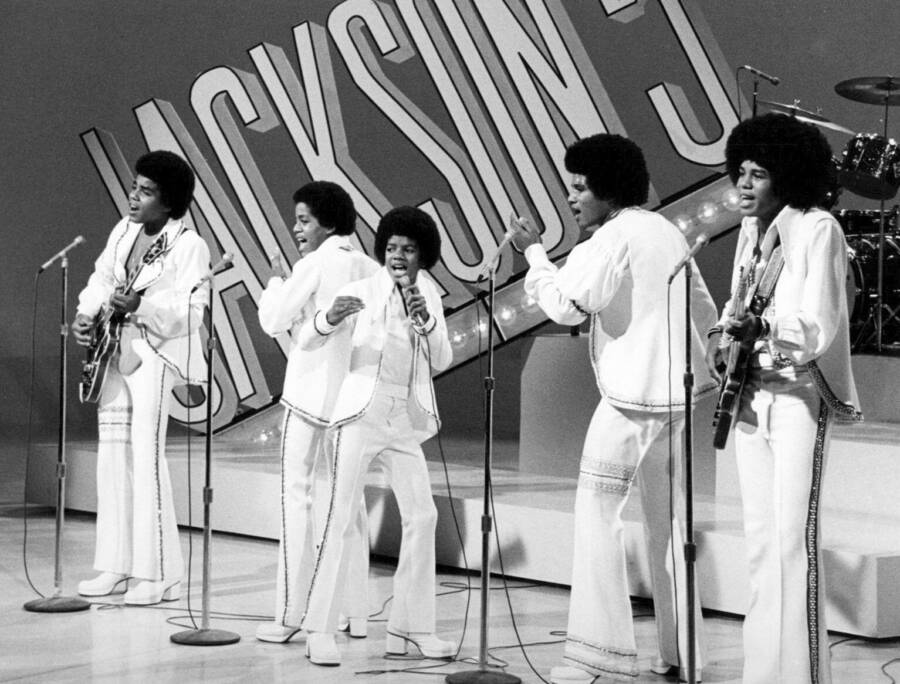
PBH Images/Alamy Stock PhotoA publicity shot of The Jackson 5 from 1972.
However, Michael Jackson also started to make a name for himself on his own. In 1972, he released his first solo album for Motown, Got to Be There, and showed off his acting chops in the cult classic film The Wiz (1978). Then, in 1979, Jackson released his first solo album for Epic Records, Off the Wall, which became the best-selling album of the entire year.
But everything really changed in the 1980s. Then, Jackson released his album Thriller (1982) and his now-iconic “Thriller” music video the next year. The album became the best-selling album in world history, eventually selling 70 million copies, and the music video arguably heralded the MTV era. Jackson’s incredible dance moves, including the “moonwalk,” also led Los Angeles Times critic Robert Hillburn to deem Jackson the “King of Pop.”
As Jackson became a bigger star, however, troubling rumors about him began to bubble to the surface. Some concerned his ever-changing appearance, especially his skin, which had started to lighten before the world’s eyes. And some were far more serious. In the 1990s, Michael Jackson started facing allegations that he’d molested young boys.
The Downward Spiral Of The “King Of Pop”
By the 1990s, Michael Jackson’s appearance had dramatically changed from his early days of fame. His brown skin had become noticeably whiter, almost translucent. Jackson addressed the rumors about his skin in a 1993 interview with Oprah Winfrey, telling her he had a skin disorder called vitiligo.
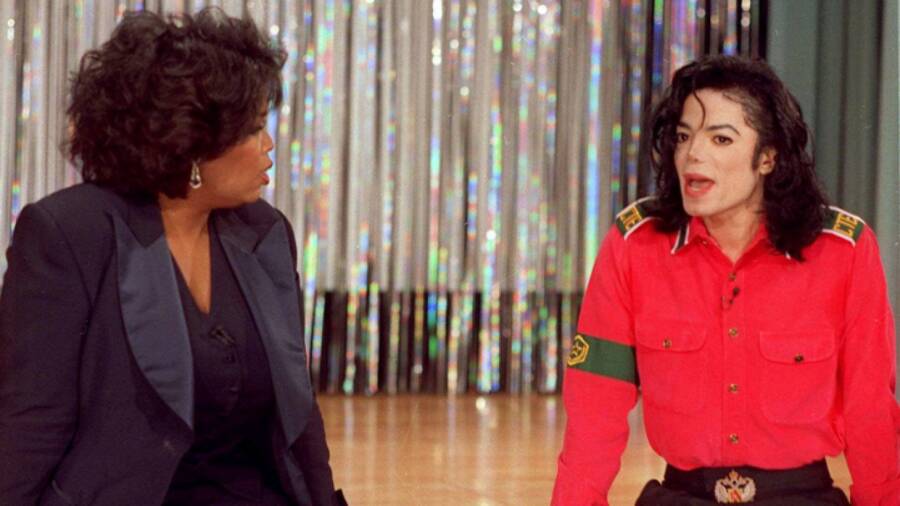
YouTubeMichael Jackson speaking to Oprah Winfrey in 1993.
“It is something I cannot help,” Jackson said during the interview, claiming that he’d only used makeup to fix blotchiness caused by vitiligo and never bleached his skin. “When people make up stories that I don’t want to be who I am, it hurts me. It’s a problem for me. I can’t control it. But what about all the millions of people who sit in the sun to become darker, to become other than what they are. Nobody says nothing about that.”
But that same year, Jackson faced far more damaging allegations than skin bleaching when it emerged that the LAPD was investigating accusations that he’d molested a 13-year-old boy. Jackson was known to spend much of his free time with young children, which sometimes included sleepovers. The allegations led some to believe that there was something far more nefarious to these get-togethers. When the boy’s family filed a civil suit against him, Jackson settled out of court, allegedly for over $20 million.
The charges were destructive to both Jackson’s image and Jackson himself, and Rolling Stone reports that the pop star’s fatal reliance on medication began around this time. Jackson turned to drugs as a means of escape and to cope with pain from past surgeries and injuries, including severe burns that he’d suffered in 1984 while filming a commercial for Pepsi.
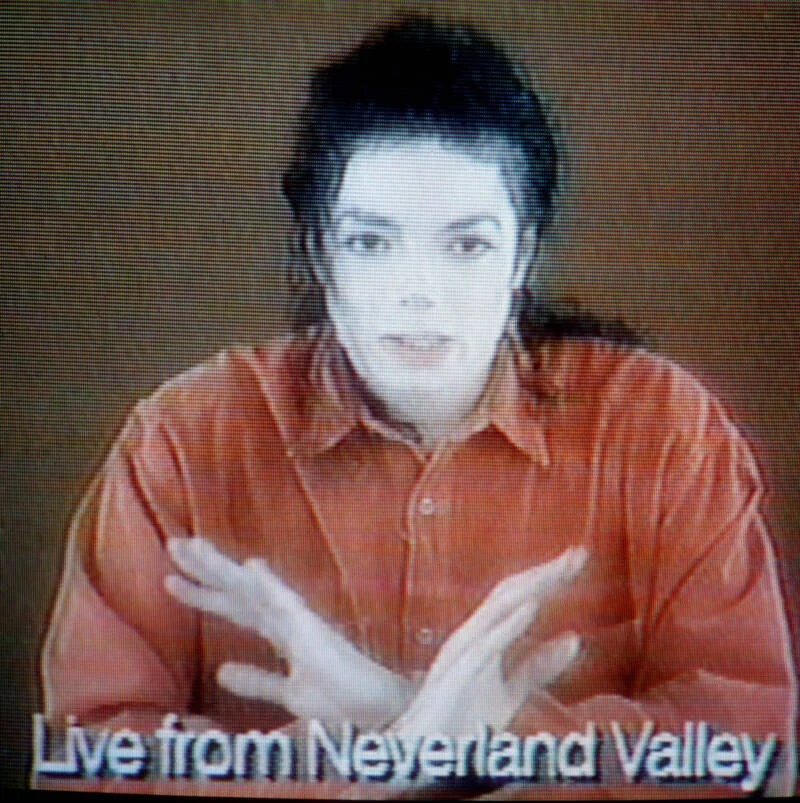
Yvonne Hemsey/Getty ImagesMichael Jackson broadcasting from his Neverland Ranch home in 1993, denying allegations of child molestation.
As time went on, Jackson appeared in the news more often for his scandals than his music. He married Lisa Marie Presley, the daughter of Elvis, in 1994, only to divorce her 18 months later. In 1996, he married a nurse from his dermatologist’s office named Debbie Rowe, with whom he welcomed two children (conceived by artificial insemination) and divorced her in 1999. Meanwhile, child molestation allegations against Jackson emerged yet again.
In 2003, Jackson was arrested on charges of molesting a different 13-year-old boy. In 2005, his case went to trial. Though Jackson was eventually acquitted of the charges, the damage to his reputation was severe. After 2005, the singer largely retreated from the public eye. Still, troubling stories about Jackson continued to emerge, like that he owed a Beverly Hills pharmacy more than $100,000 in prescription drug debts.
Jackson more or less avoided the spotlight until 2009, when he announced a series of 50 concerts that he’d perform in London later that year. He described the tour as a “final curtain call” — but his actual curtain call would come before the tour began, when Michael Jackson died on June 25, 2009.
How Did Michael Jackson Die? His Final Hours
As Michael Jackson prepared for his tour, some close to him started to notice disturbing changes. His makeup artist, Karen Faye, later recalled that Jackson “was not the man I knew” and that he was “acting like a person I didn’t recognize.” Show director Kenny Ortega who, like Faye, was very familiar with Jackson’s usual work habits, similarly testified that the singer seemed “lost, cold, afraid” and exhibited paranoid and anxious behavior.
Though such concerns were brought to Jackson’s personal doctor, Conrad Murray, Murray allegedly insisted that Jackson was “physically and emotionally capable of handling all his responsibility as a performer.”
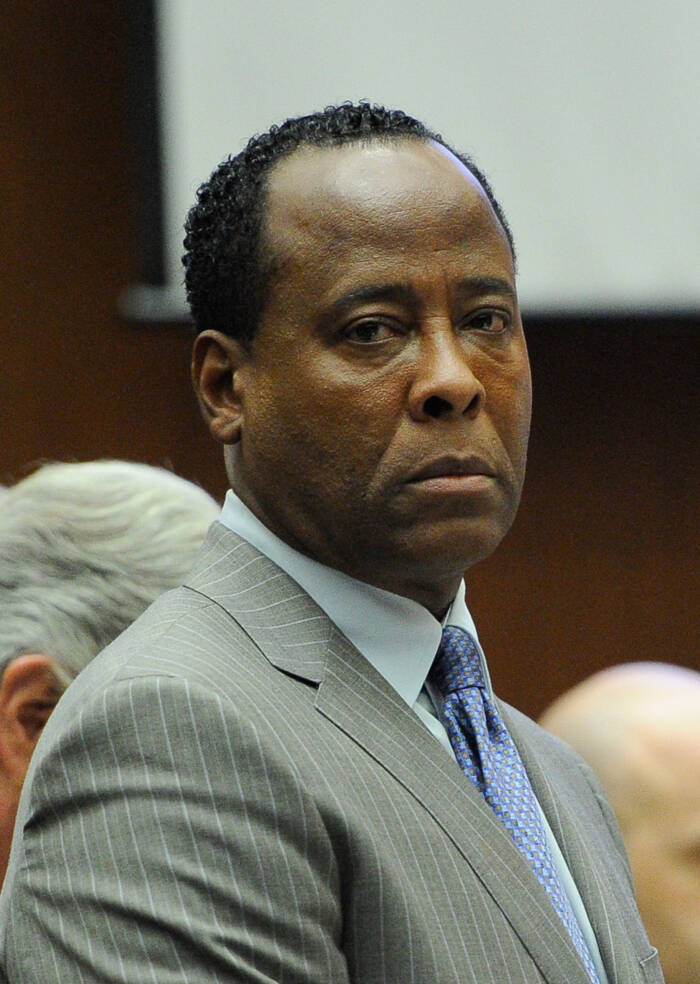
WENN Rights Ltd/Alamy Stock PhotoConrad Murray during his involuntary manslaughter trial in 2011.
On June 24, 2009, Michael Jackson attended rehearsal as normal. The tour was set to begin the next month at London’s O2 Arena, and Jackson rehearsed until about midnight. After that was done, he hugged his dancers, thanked his crew, and returned to his Los Angeles home.
There, Jackson — who had long suffered from insomnia and was having an especially difficult time sleeping in recent months — told Murray that he needed rest. In the early hours of June 25, 2009, Murray gave Jackson a series of drugs that were meant to help him sleep, including the anti-anxiety medication lorazepam, the sedative midazolam, and Valium.
Murray later told investigators that he initially resisted Jackson’s requests for propofol, a powerful anesthetic that Murray had given the singer before (even though it’s not meant to be used outside of hospital or clinic settings). As the morning hours stretched on, however, Murray relented.
Mere moments later, Murray realized that Jackson was not breathing. He said he made multiple attempts to resuscitate him, as did first responders who arrived at the home. But it was too late — Michael Jackson died after suffering cardiac arrest brought on by acute propofol intoxication.
The world awoke to the shocking news that the King of Pop had perished. As the Los Angeles Times grimly put it, Jackson had “spent much of his life as one of the most famous people on the planet, and to many, his untimely death felt both unthinkable and, oddly, inevitable.”
The Aftermath Of Michael Jackson’s Death
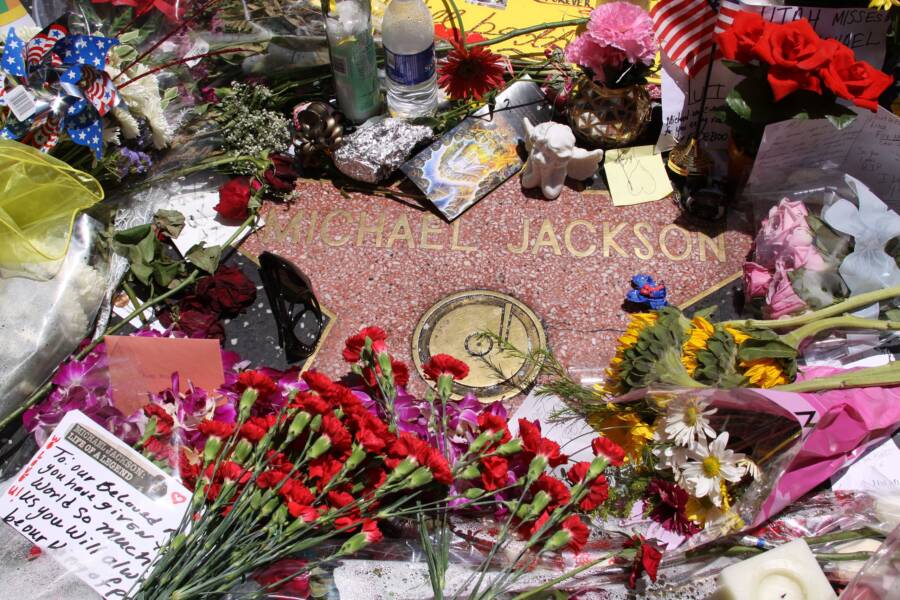
Taty2007/Wikimedia CommonsGifts left by fans at Michael Jackson’s Hollywood Walk of Fame star on the day of his death.
Eight months after Michael Jackson’s death, investigators charged Conrad Murray with involuntary manslaughter. In 2011, Murray was found guilty and sent to prison where he served two years of a four-year jail sentence.
Since then, Michael Jackson has held an uncomfortable place in American culture. He was the “King of Pop,” an iconic singer who revolutionized dance moves and music videos. But child molestation accusations against the singer have only grown louder since Michael Jackson’s death.
Between 2013 and 2014, two men named Wade Robson and James Safechuck sued the Jackson estate and Jackson’s companies on the grounds that the singer had abused them as boys. Though a judge initially rejected their suits, the HBO documentary Leaving Neverland (2019) brought their story to a wider audience. Both men offered detailed descriptions of the alleged abuse they suffered at Jackson’s hands, which they claimed took place at a variety of locations, including Jackson’s Neverland Ranch.
In 2023, a California appeals court ruled that Robson and Safechuck could resume their lawsuits and move them forward to jury trials.
All of this makes Michael Jackson difficult to judge. A once-in-a-lifetime artist, Jackson will always be remembered for songs like “Billie Jean” and “Thriller,” for his famous music videos, and for his even more iconic dance moves. But the disturbing allegations against Jackson — though he has never been found guilty — also cast a dark shadow on his legacy.
After reading about how Michael Jackson died, go inside the tragic final days of Whitney Houston. Or, learn about the death of Freddie Mercury.
